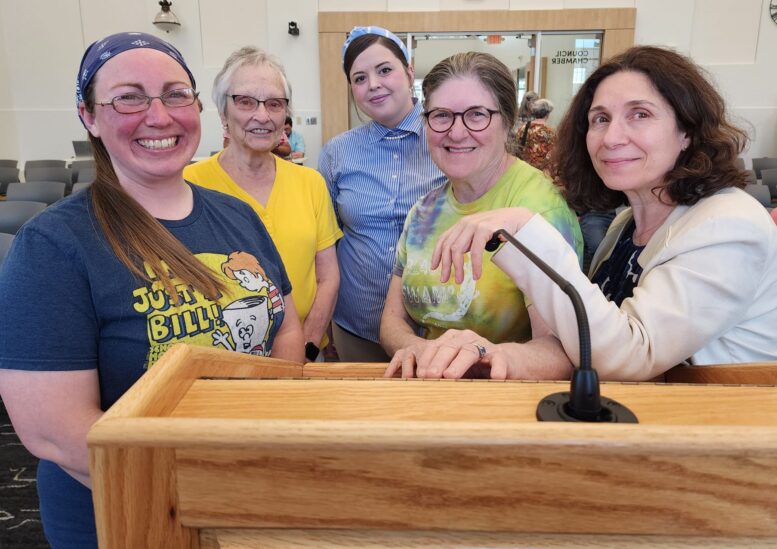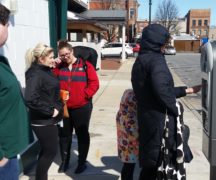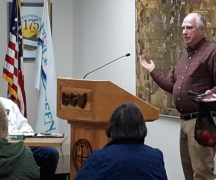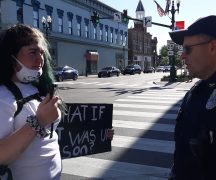By JAN McLAUGHLIN
BG Independent News
At nearly every Bowling Green City Council meeting there are five familiar faces. They aren’t city employees or elected officials. They aren’t paid to sit through the sometimes tedious discussions.
At times, they approach the podium and offer their views to City Council. But usually they just sit quietly, listen and observe the inner workings of how their community is governed.
It’s not that they suspect city officials of unscrupulous behavior or dishonorable motives. The women just believe that government works best when constituents are watching.
The five women – Rose Drain, Lindsay Jo Durham, Katelyn Elliott, Joyce Kepke and Vassiliki Leontis – come from different walks of life and are all members of the League of Women Voters in Bowling Green. Some were motivated to attend city meetings by a particular issue, others by an overarching interest in their community.
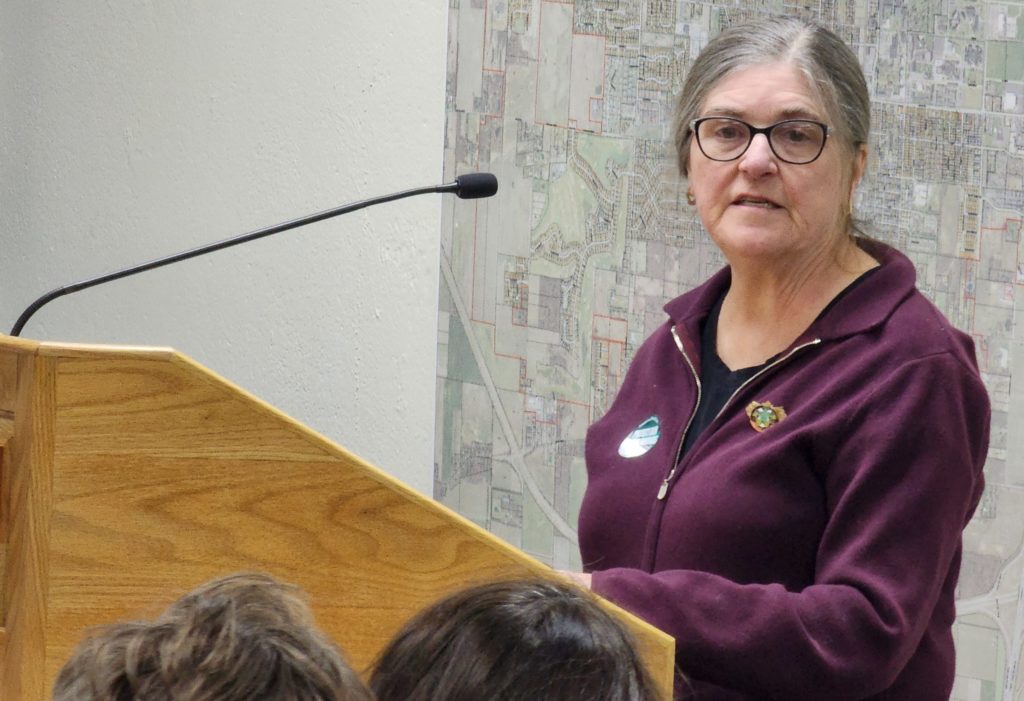
For example, Drain began attending City Council meetings in 2022 when the city was working on a major update to the zoning code. She and other residents had concerns about how the changes would affect the older neighborhoods of Bowling Green.
The citizens put door hangers at every home that would potentially be negatively impacted by the zoning code update. Drain and others collected more than 650 signatures on a petition opposing some of the proposed changes, and they were a constant presence at council, planning and zoning meetings.
Drain, 71, has “no doubt” that their efforts made a difference and resulted in revisions to the zoning update.
While most of the citizens involved in the zoning debate no longer attend council meetings, Drain continues to show up.
“I feel it’s respectful to City Council and the city administration to keep coming,” she said. “Our presence says that we care.”
At some meetings, Drain is the voice of the BG Save Our Neighborhoods Group and an advocate for a city dog park. But usually, she just listens.
Drain’s favorite time at council meetings is the “lobby visitation,” when citizens are given time to voice opinions on issues such as dog parks, pickleball courts, and zoning.
“I like it when groups come to advocate for their cause,” she said, noting that citizen voices have resulted in city action on a dog park, pickleball and zoning changes.
“Sometimes I have the suspicion that the administration wishes we wouldn’t be here. I hope I’m wrong,” she said. “Sometimes we’re the fly in the ointment. But it’s good to have watching eyes.”
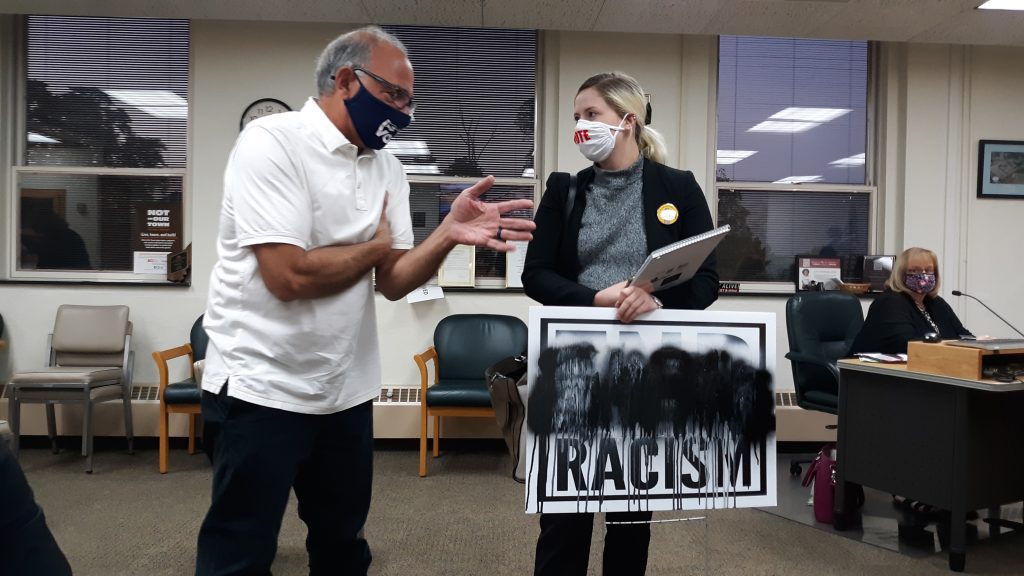
At 31, Durham is the youngest member of the council constants. She began attending meetings in 2020 after George Floyd was killed by police in Minneapolis. Durham wants to be the voice for marginalized people in the community.
“My main goal in life is to help people,” she said. “I come from a place of privilege, and it’s still intimidating to speak before council.”
Durham still shows up every other Monday for council meetings, sometimes speaking on the causes that mean the most to her – BGO Pride, BRAVE, the Arts Council, the downtown, and mental health issues. She is a member of the Bowling Green Community Foundation.
“People don’t realize how things will affect them,” Durham said, noting that she can be the eyes and ears for people not comfortable coming to city meetings. “I actually look forward to the meetings.”
She realizes there may be times when city officials are thinking, “Oh no, these people are back again.” But Durham is unapologetic about causing “good trouble.”
“I have an interest in the future,” she said.
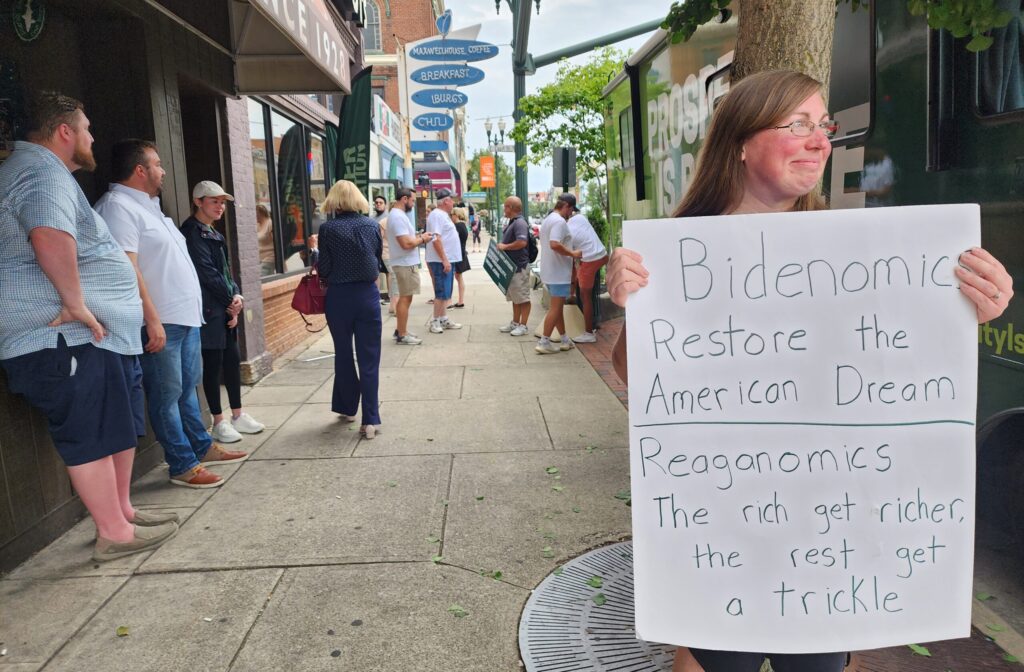
On the rare occasion that Katelyn Elliott isn’t at a City Council meeting, she is still watching.
“I always follow it online,” she said.
A full blown government geek, Elliott’s interest in local government took root early in her life – in high school she was a regular at township trustees meetings.
“Local government has always been so interesting to me,” she said.
In 2018, Elliott started attending Bowling Green city meetings as the observer for the League of Women Voters. She finds it hard to comprehend that more people don’t attend the meetings.
“It’s hard to stress to people the important role the city plays in roads, infrastructure, zoning, cemeteries,” and so much more, she said.
Elliott, 37, attends the meetings for the full “sausage making” process, though she does have particular interests in some topics like bike lanes, sustainability and climate change. As a parent of a child who uses a wheelchair, she is sensitive to sidewalks and pedestrian infrastructure needs. She is a member of the city’s tree commission and the Bowling Green Parks and Recreation Board.
Elliott rarely speaks at council meetings, but she attends with purpose – bringing a folding step stool since her short stature keeps her feet from touching the floor in council chambers.
Her priority is transparency, acknowledging that she pestered city officials to put the wording of proposed legislation online for citizens to peruse before it’s a done deal.
“Where are these laws coming from,” she said. “I badgered council for that so we know what we should do as citizens.”
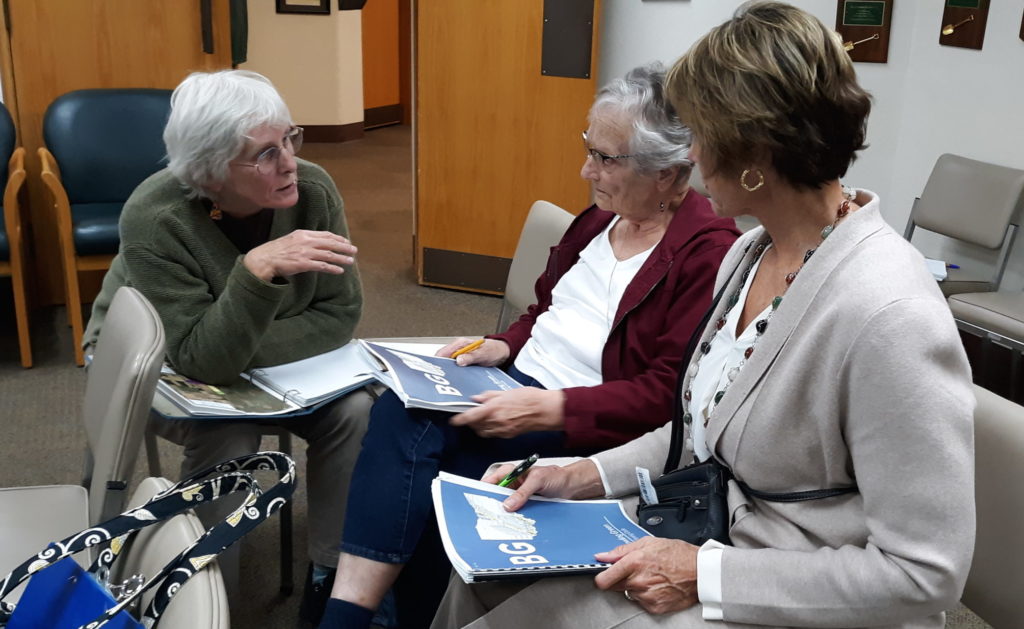
Joyce Kepke, 87, is the most senior and most experienced of the women keeping tabs on city government. She served on City Council for 20 years, beginning in 1976, and was the first woman elected as council president in Bowling Green. Kepke served another 14 years on the city’s Board of Public Utilities.
She has memories of some of the more controversial issues tackled while she served on council – top on the list being the cat leash ordinance, exotic animals ordinance, and zoning issues.
Kepke brings plenty of gravitas to the meetings, but she doesn’t flaunt it as she sits quietly in the back of council chambers.
“I’ve always tried to keep track of city government,” she said.
But it was the zoning code update that convinced her to come back in earnest.
“I started going and I realized, ‘Oh my gosh, this is major,’” she said.
Kepke is a member of the BG Save Our Neighborhoods Group, and believes in showing city leaders there is more to citizen participation than grumbling.
“We can show we’re not just complainers, we care about our neighborhoods,” she said.
Kepke joined Elliott in pushing for proposed legislation to be available to the public prior to the issues coming before council.
“The more information you provide, the more citizens can get involved.”
Though it’s been nearly three decades since she served on City Council, Kepke said the process is much the same. “I don’t think they’re different. I’m just sitting on a different side now.”
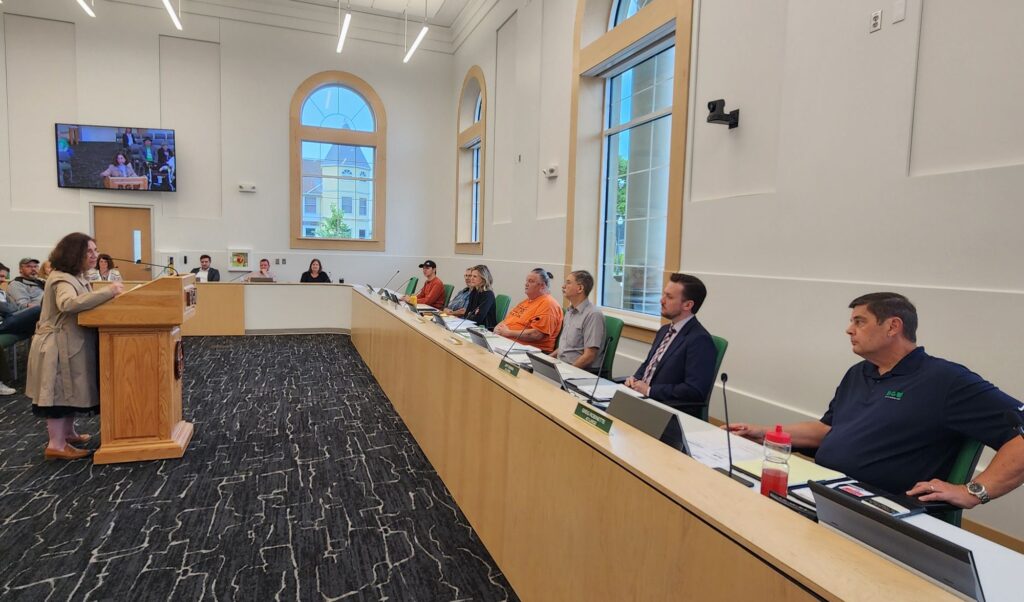
Leontis comes to council meetings in her official role of observer for the League of Women Voters. But it’s likely she would be there anyway.
“I come to meetings to observe and write my own minutes,” which are then reported to the League.
“I just want to know first-hand how City Council functions and deliberates,” she said. “I’ve always been interested in the formal process. I like to interact with the community at this level.”
Leontis, 64, recalled first attending a city meeting 10 or 15 years ago over a zoning dispute. She often returned to meetings while her husband, Neocles, served on council until his death in 2020.
Some constituents have encouraged her to run for a council seat, and Leontis has given it consideration. But for now, she sees her role as observer for the League of Women Voters, and as a citizen who tries to convince others of the importance of getting involved.
She has little tolerance for people who say they don’t have enough time or interest to attend city meetings.
Positive transformations can happen in the community when citizens get involved.
“When they come out in force, that’s when changes happen when we unite,” Leontis said.

